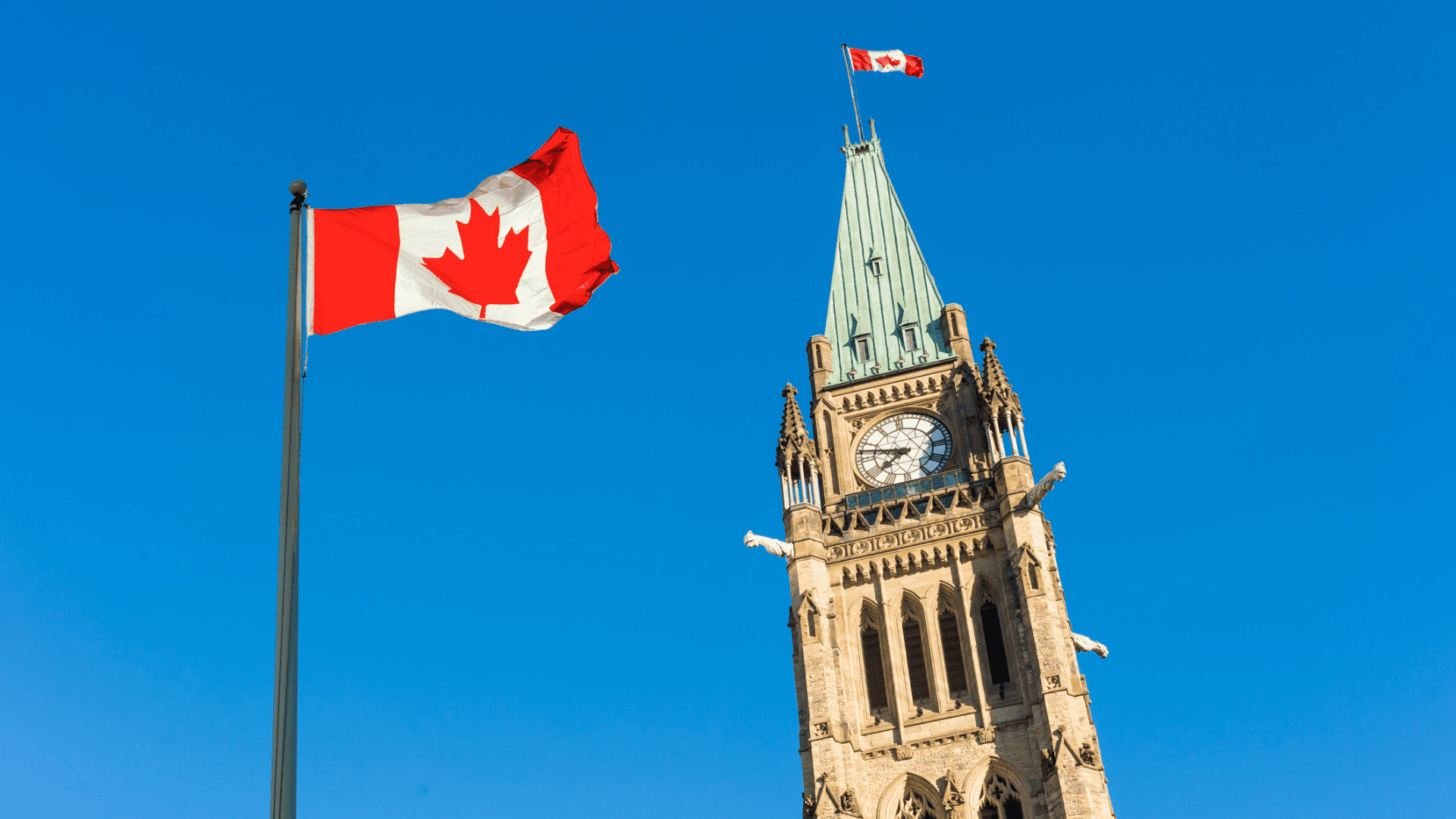Recent swings in public opinion recall the aftermath of the Parti Québecois victory in 1976.
Much has been written in recent weeks about the stunning and seemingly “unprecedented” reversal of fortune for the Liberal Party. As we know, the Trudeau Liberals had become increasingly unpopular in recent years and the federal Conservatives under Pierre Poilievre had built up a consistent double-digit lead in vote intention that seemed insurmountable. Over the last two months all of that has shifted dramatically – to the point where the Liberals under new leader Mark Carney have erased the gap in the polls and may even be favoured to win the April 28th election.
While the replacement of Justin Trudeau has played a role in this shift, a more common explanation is that Donald Trump’s plans to impose tariffs on Canada and threats to annex Canada and make us the “51st state” have been like a depth charge to the Canadian psyche. Canadians feel they face an existential threat and the “ballot question” has shifted from typical election issues such as affordability, the economy, and health care to the very survival of Canada as a sovereign nation.
While this shift in vote intention has been dramatic, it is not as unprecedented as some have described . I can remember another time when a very unpopular Liberal government, led by a man named Trudeau, had been in power for long time. Let’s take a trip down memory lane to the year 1976. The Liberals had been in power for 13 years and Pierre Trudeau had won his third election in 1974. Things started to unravel very quickly for the Liberals after they regained their majority that year. Inflation was a major concern, so much so that after winning the 1974 election by promising NOT to impose wage and price controls, Trudeau made a 180 degree turn and imposed them himself. Trudeau’s Finance Minister John Turner had resigned in a huff, various ethical scandals engulfed the Trudeau government and after more than a decade in power the Liberals seemed out of gas and there was a mood for change. Does all of this sound familiar?
By the start of 1976, the federal Liberals were far behind in the polls and the conventional wisdom was that whoever won the Progressive Conservative (PC) leadership that year was almost guaranteed to win the next election. I remember that moment in time very well. I was there! As a 12-year-old I was already a bit of a political junkie, and I had been sent to Ottawa by the Montreal Star (RIP) to observe the PC convention and write about it from a kid’s perspective. I well remember the hoopla and excitement when Joe Clark won the leadership and for a while there was something resembling “Clark-mania” sweeping the country. The federal Liberals had never been so unpopular and polls that summer and early fall regularly gave the Clark PCs a massive lead. The next election seemed like a forgone conclusion. There were rumblings in the Liberal Party about ousting Trudeau and bringing in John Turner. Then something happened…
In the fall of 1976, embattled Quebec Premier Robert Bourassa called an early provincial election. To the complete shock of everyone, the Parti Québecois under René Lévesque easily won that election and pledged to hold a referendum on Quebec seceding from Canada. In what felt like an instant, all the issues that had bolstered the lead of the Clark Tories – inflation, Liberal scandals, an appetite for change – were swept aside as Canada faced a new existential crisis.
Perfectly bilingual Pierre Trudeau, having swept Quebec federally in three straight elections, was widely seen as the best person to deal with Quebec and keep the country united. As an Albertan who spoke heavily accented French and whose party had almost no representation in Quebec, Clark was seen as utterly ill-suited to the task of dealing with Quebec.
By early 1977 polls suggested a complete reversal of fortune for the Trudeau Liberals as the ballot question became, “Who can keep Quebec in Canada?”. I remember that period very well. The endless punditry and pearl-clutching on the existential threats to Canada. The emotional reactions across Canada to the possibility of losing our country. The speculation that if Quebec separated the rest of Canada would be absorbed by the United States. The Liberals surged into a lead over the Tories in the polls.
Here’s where the comparison to the current situation veers off in another direction. Had Pierre Trudeau called a snap election in 1977 during that period of maximum angst about national unity, there is a good chance the Liberals would have won. Instead, Trudeau decided to play for time. But as time went on and Canadians got used to the PQ being the government of Quebec and the economy continued to stagnate, old resentments against the Liberals gradually reasserted themselves. By mid-1978 the bounce the Liberals had gotten from the PQ victory had faded away. The Tories were back in the lead and the Liberals lost a string of byelections in safe Liberal seats. By the time Trudeau finally called an election in the spring of 1979, the writing was on the wall and the Liberals were considered to have done well to have prevented a Tory majority. How that minority situation for Clark indirectly led to Trudeau’s shock comeback in 1980 is a whole other story.
The moral of the story is that 2025 is not the first time Canadian politics have been turned upside down by an existential threat. Pierre Trudeau missed his window of opportunity in the spring of 1977, but it may well be that an election in the spring of 2025 proves to be perfect timing for Mark Carney.





